If you're searching for the best spices for vegetable soup, here's what works immediately: start with thyme, bay leaf, and black pepper for classic flavor. Add them early in cooking. For depth, include cumin or paprika bloomed in oil first. Finish with fresh herbs and a splash of acid like lemon juice. This simple approach creates restaurant-quality soup in under 30 minutes.
Quick Reference: Essential Spices for Vegetable Soup
- Must-have trio: Thyme, bay leaf, black pepper (add at beginning)
- For depth: Cumin or paprika (bloom in oil first)
- Finishing touch: Fresh parsley + lemon juice (add at end)
Why These Spices Transform Basic Vegetable Soup
Most home cooks make vegetable soup that tastes flat because they either skip spices entirely or add them randomly. The right spices in the right order create layered flavor that makes your soup taste professionally made. You don't need chef training—just follow these practical timing rules that home cooks use to get consistent results.
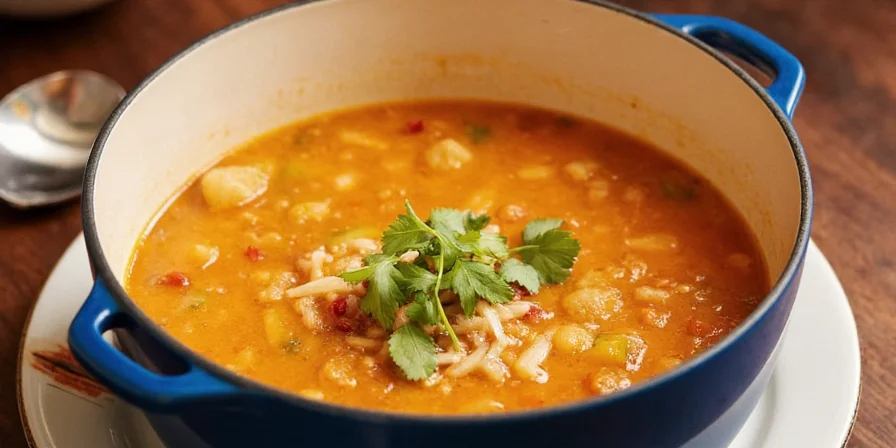
Notice how proper spice timing creates depth in minutes
The science behind this is simple: some spices need time to infuse (like bay leaf), some need oil to release flavor (like cumin), and some lose potency with long cooking (like fresh herbs). Follow this timing method and your soup will taste complex without extra work.
Top 5 Spices Every Home Cook Needs for Vegetable Soup
Forget complicated spice racks. These 5 spices work for nearly all vegetable soups and are pantry staples:
| Spice | When to Add | Quantity for 4 Servings |
|---|---|---|
| Bay Leaf | First, with vegetables | 1 leaf |
| Thyme | First, with vegetables | 1/2 teaspoon dried |
| Cumin | Bloom in oil before adding liquid | 1/4 teaspoon |
| Paprika | Bloom in oil with cumin | 1/4 teaspoon |
| Fresh Parsley | Right before serving | 1 tablespoon chopped |

Keep these 5 spices in your pantry for perfect soup every time
The Simple Timing Method That Works Every Time
Professional chefs use this 3-stage timing approach, but you can apply it in home cooking with no special tools:
- Early Addition (Build Foundation): Bay leaf, thyme, and black pepper added when sautéing vegetables. These need time to infuse.
- Middle Addition (Create Depth): Cumin and paprika bloomed in oil for 30 seconds before adding broth. This unlocks their full flavor.
- Late Addition (Fresh Finish): Fresh herbs and lemon juice stirred in right before serving. Preserves brightness.
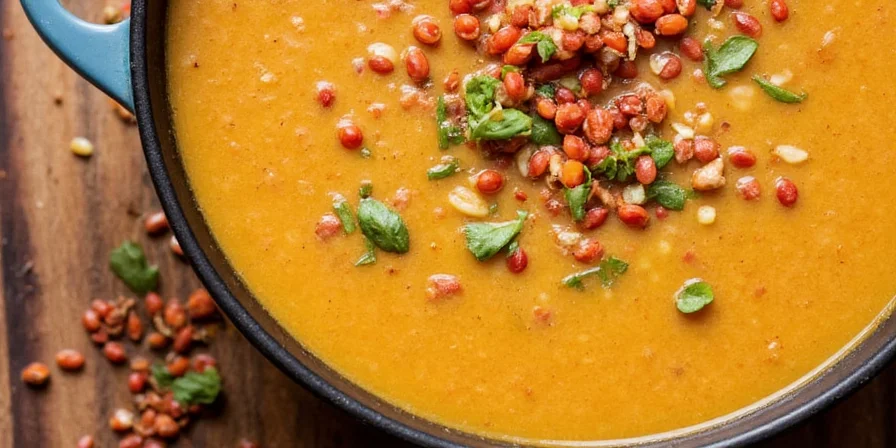
Follow this timing sequence for perfect flavor every time
3 Foolproof Flavor Combinations to Try Tonight
These simple pairings work with whatever vegetables you have on hand:
- Classic Comfort: Thyme + bay leaf + black pepper (add early) + fresh parsley (add late)
- Warm & Earthy: Cumin + paprika (bloom first) + thyme (add early) + lemon juice (add late)
- Simple Italian: Oregano + basil (add early) + red pepper flakes (bloom) + fresh basil (add late)
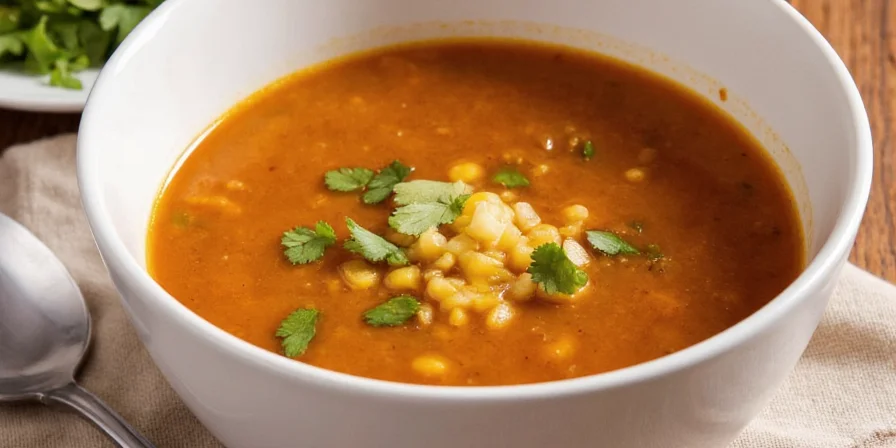
These 3 combinations work with any vegetables
4 Mistakes That Make Soup Taste Bland (And How to Fix Them)
Avoid these common errors that home cooks make:
- Mistake: Adding all spices at the beginning
Fix: Bloom ground spices in oil first, add fresh herbs at the end - Mistake: Using old spices
Fix: Replace ground spices yearly, whole spices every 2 years - Mistake: Forgetting acid at the end
Fix: Add 1 tsp lemon juice or vinegar before serving - Mistake: Over-salting early
Fix: Add salt after broth reaches simmer
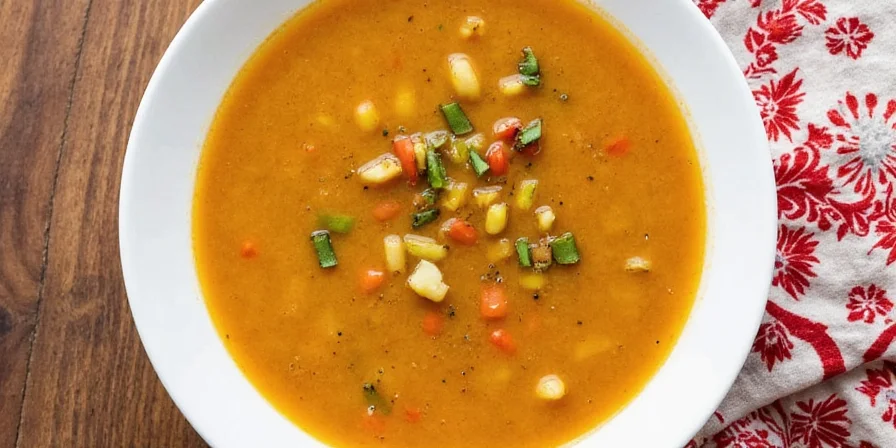
Avoid these 4 errors for better flavor in minutes
How to Keep Spices Fresh (Simple Method)
You don't need special equipment—just follow these 3 rules:
- Store in dark place (not above stove where heat degrades them)
- Keep containers tightly closed (oxygen makes them stale faster)
- Buy whole spices when possible and grind as needed (lasts 2x longer)
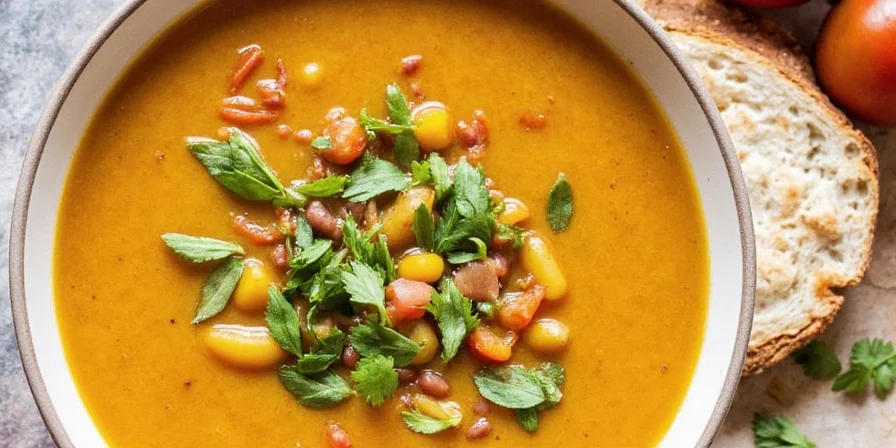
This basic storage keeps spices fresh for months
Going Deeper: The Science Behind Perfectly Spiced Soup
Once you've mastered the basics, understanding why these methods work helps you improvise:
- Fat-soluble spices (cumin, paprika) need oil to release full flavor
- Water-soluble spices (thyme, bay leaf) infuse gradually in liquid
- Volatile compounds (fresh herbs) evaporate with prolonged heat
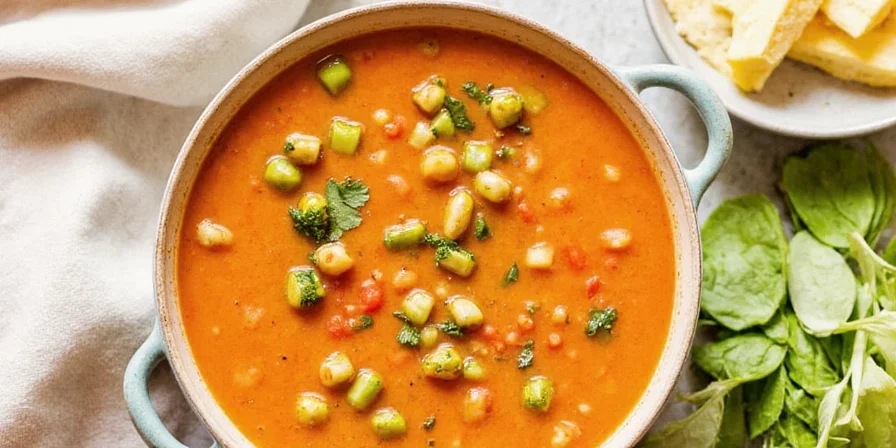
Understanding these principles helps you adjust for any recipe
How to Make Vegetable Soup That Tastes Amazing Every Time
You don't need fancy techniques or rare spices. Just follow this simple framework:
- Bloom ground spices in oil for 30 seconds
- Add foundational spices with vegetables
- Finish with fresh herbs and acid
With these steps, your vegetable soup will have restaurant-quality flavor that impresses everyone. The best part? It takes no extra time—just smarter timing.
Try this method with your next batch of soup and notice the difference immediately. You'll never go back to bland, one-dimensional soup again.
Frequently Asked Questions
- What's the absolute minimum spices I need for good vegetable soup?
- Thyme, bay leaf, and black pepper added early, plus fresh parsley at the end. This simple combination creates depth without complexity.
- Can I use fresh thyme instead of dried?
- Yes—use 3x more fresh thyme (1 teaspoon fresh = 1/3 teaspoon dried). Add fresh thyme stems early in cooking and remove before serving.
- How can I fix soup that's too bland?
- Add 1/4 teaspoon acid (lemon juice or vinegar) and a pinch of red pepper flakes. The acid brightens flavors while the heat enhances perception of other spices.
- Should I use fresh or dried herbs in vegetable soup?
- Dried herbs work better early in cooking (thyme, oregano). Fresh herbs (parsley, cilantro) should be added in the last 5 minutes for best flavor.
- How much spice should I use for a big pot of soup?
- For every additional 4 servings, add half the original amount. Example: if recipe serves 4 with 1/2 tsp cumin, 8 servings need 3/4 tsp total (not double).
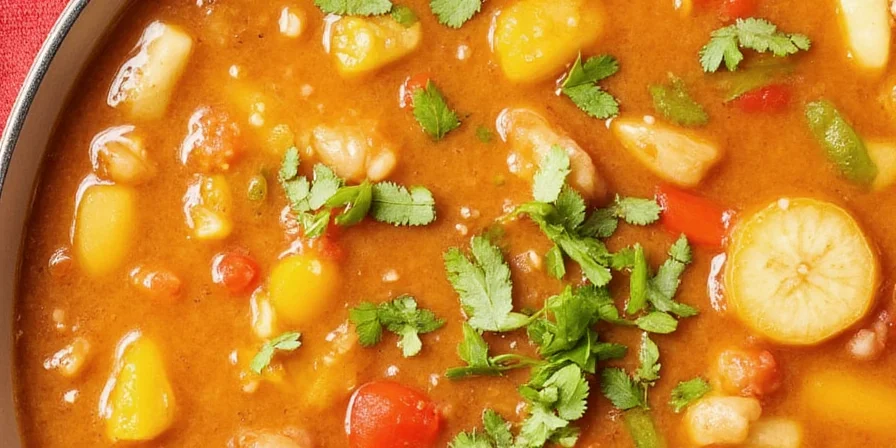
Your next batch will taste amazing with these simple techniques

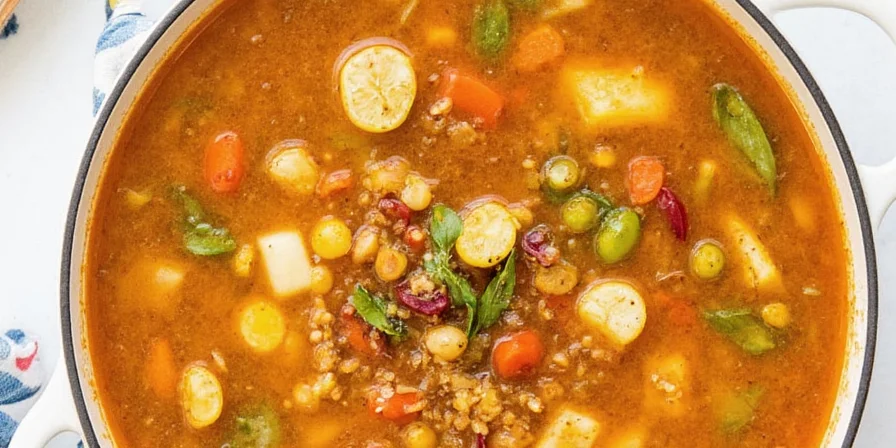









 浙公网安备
33010002000092号
浙公网安备
33010002000092号 浙B2-20120091-4
浙B2-20120091-4